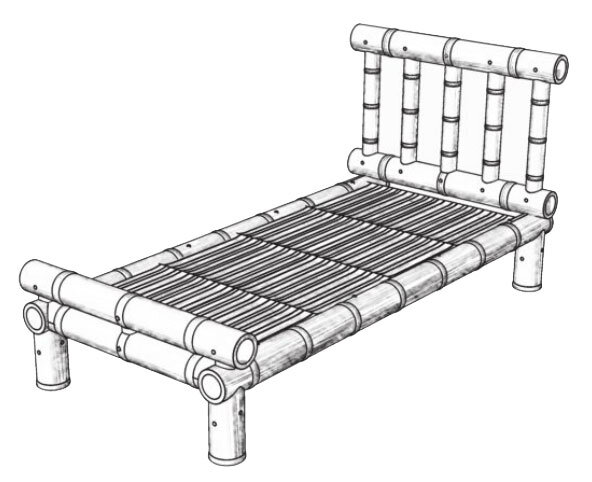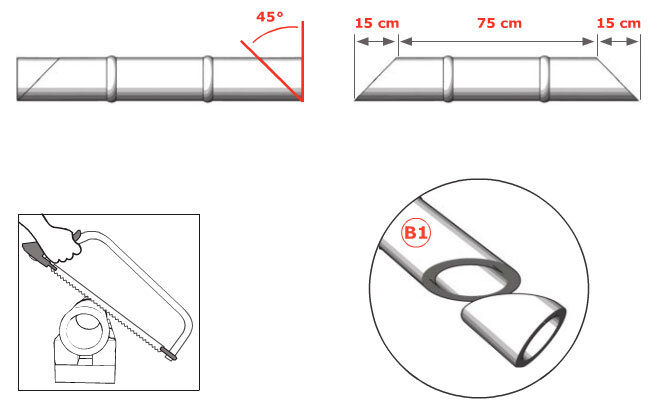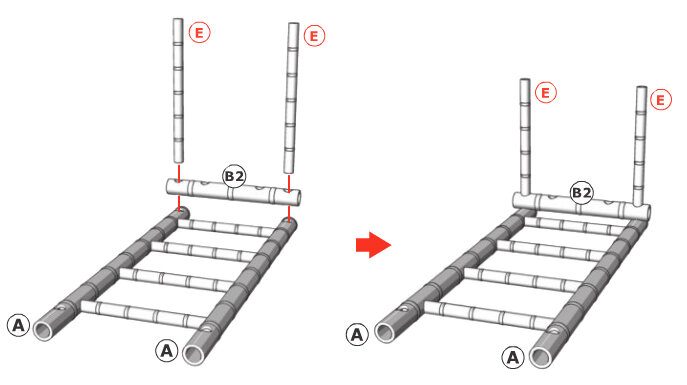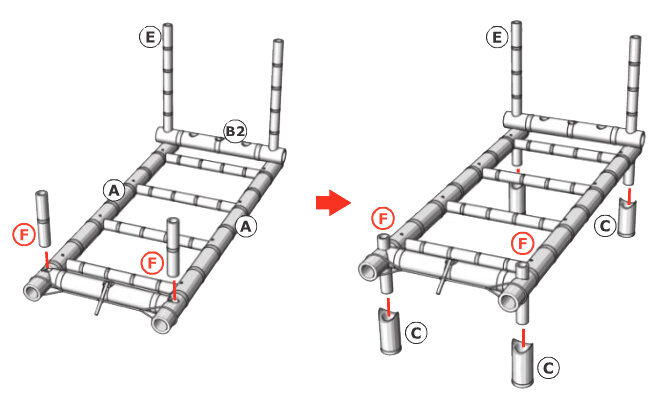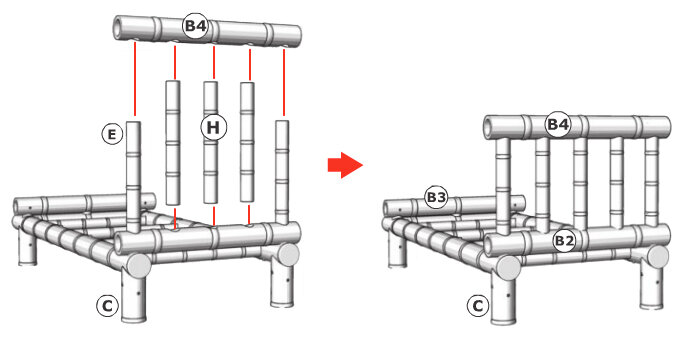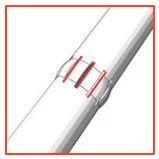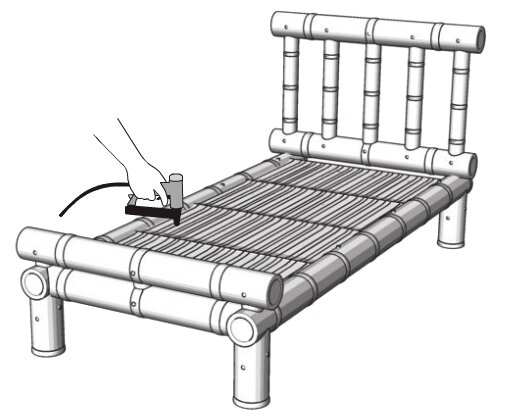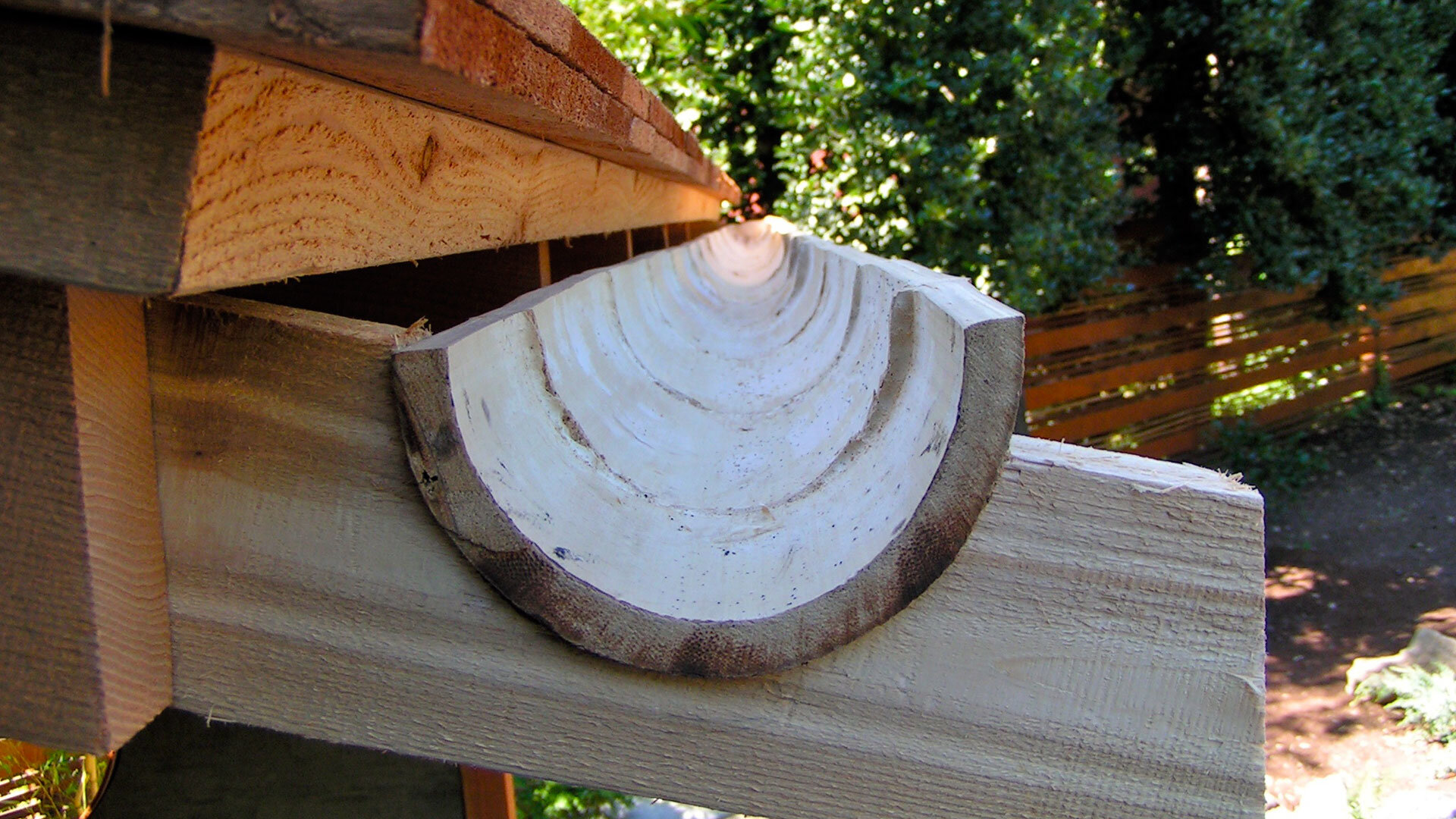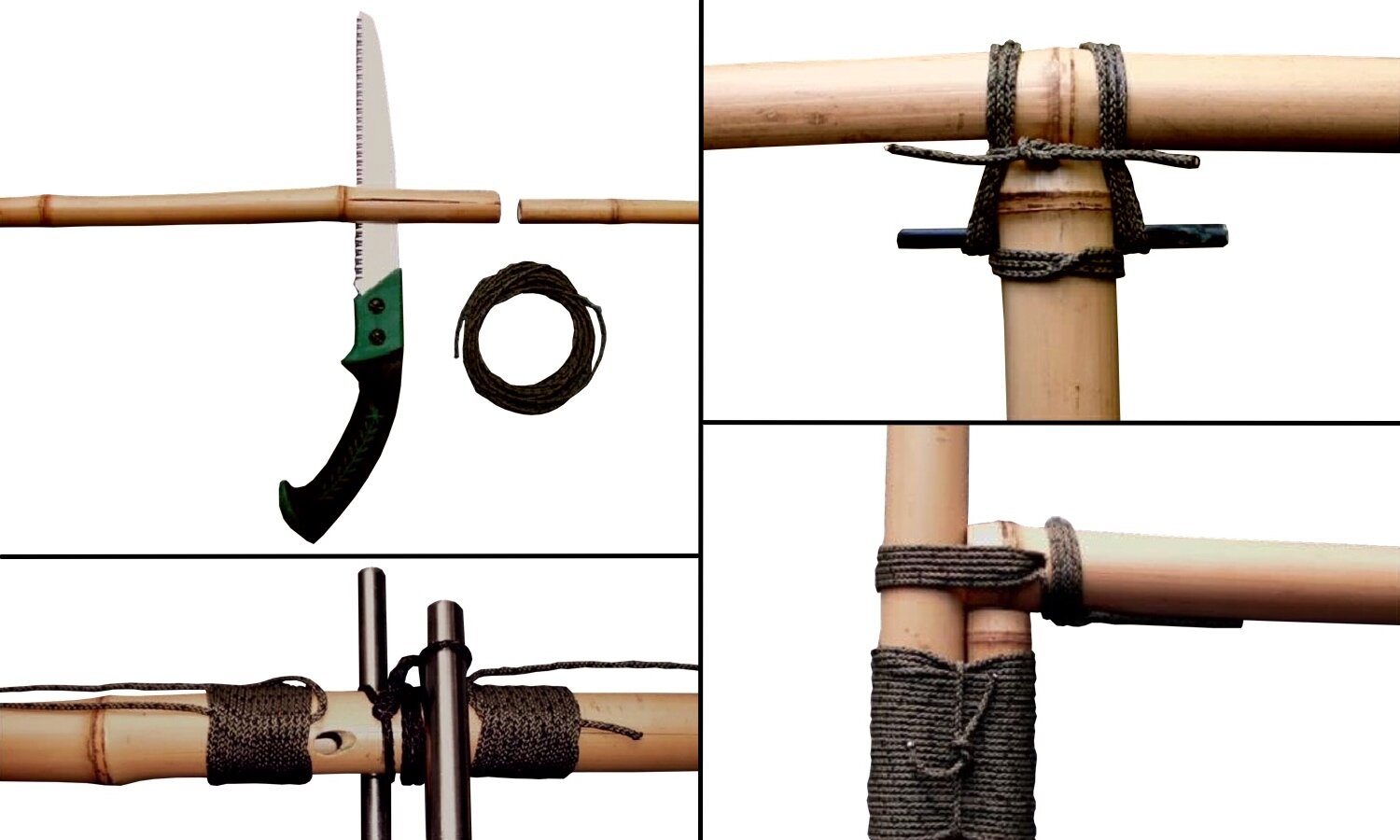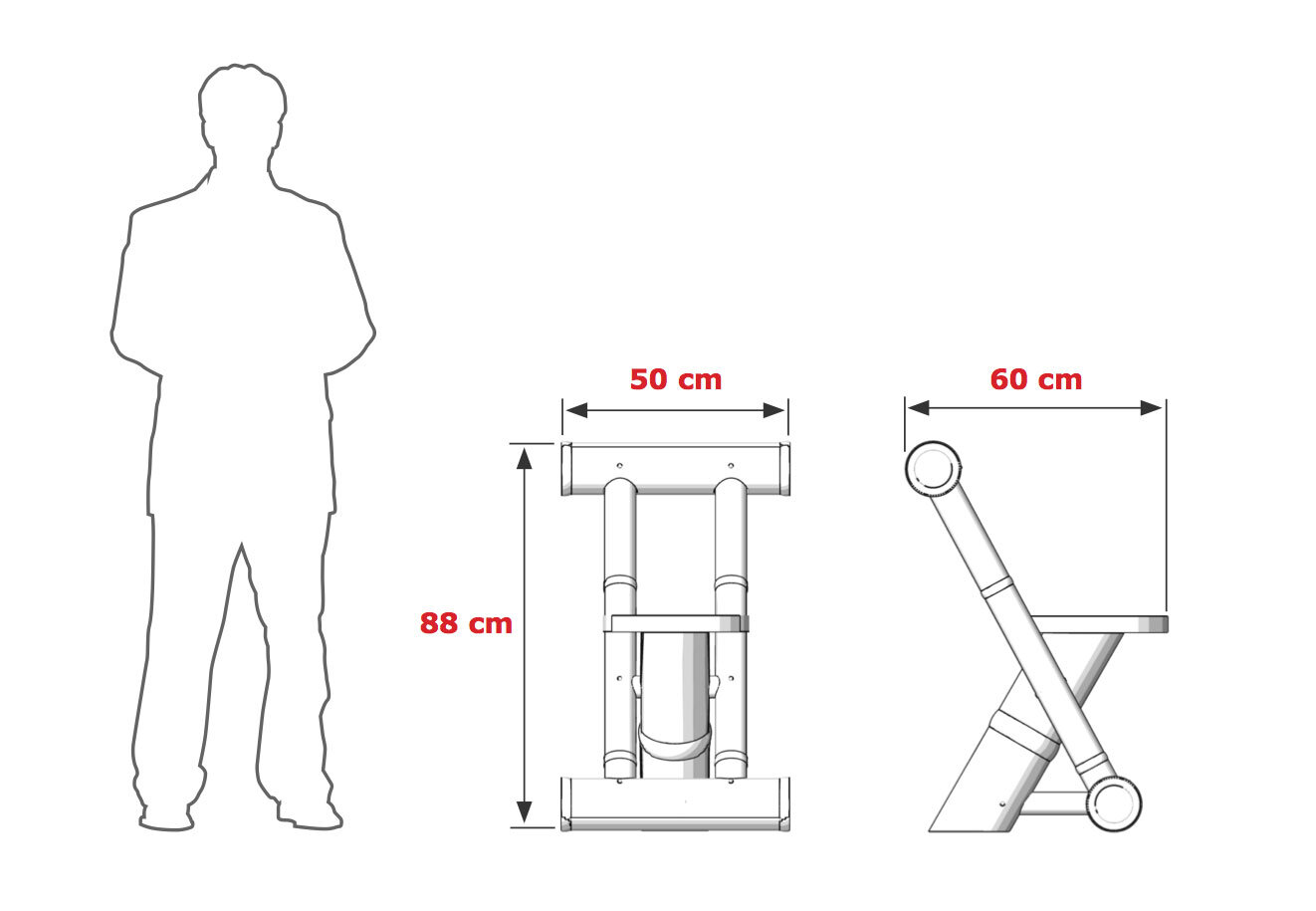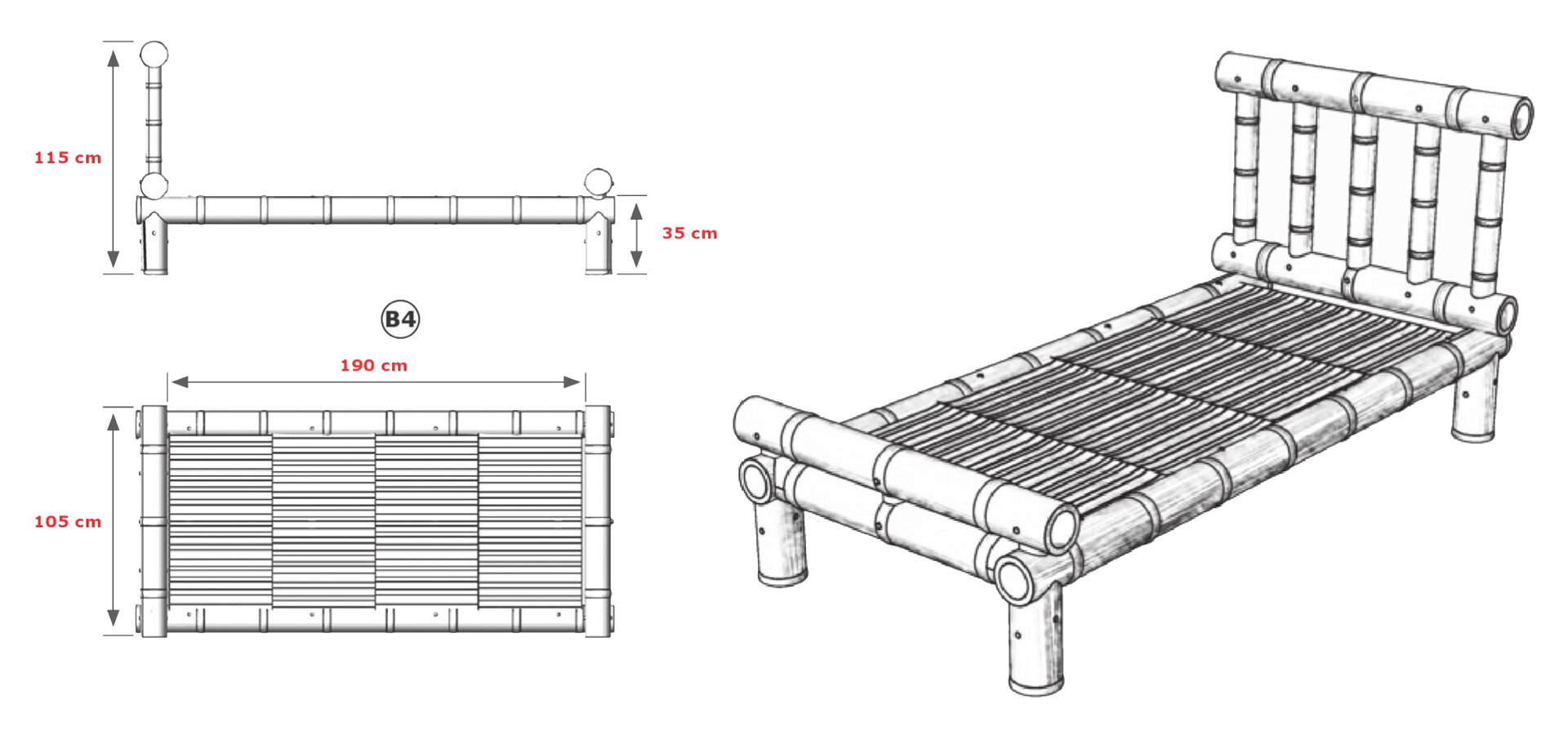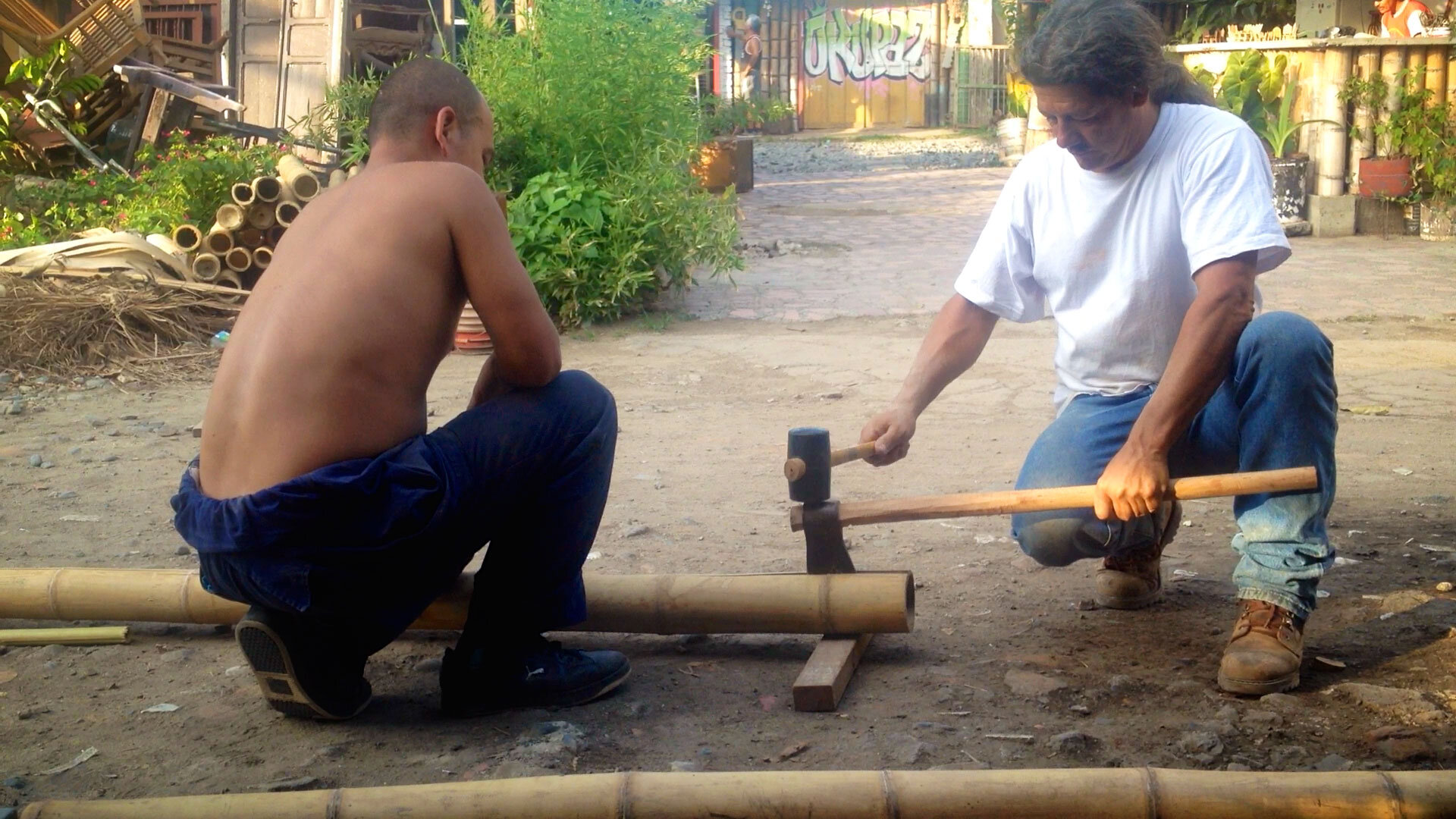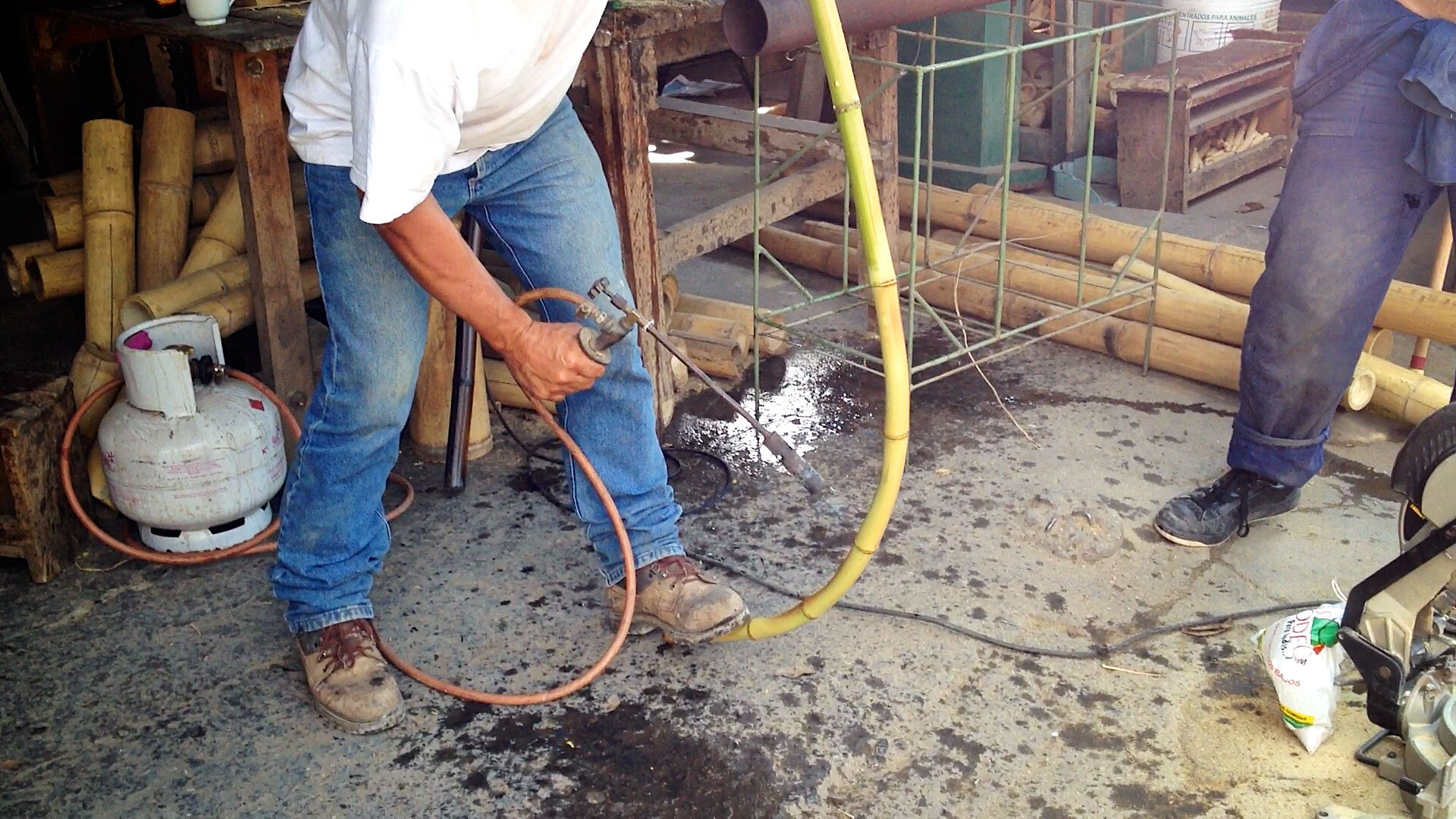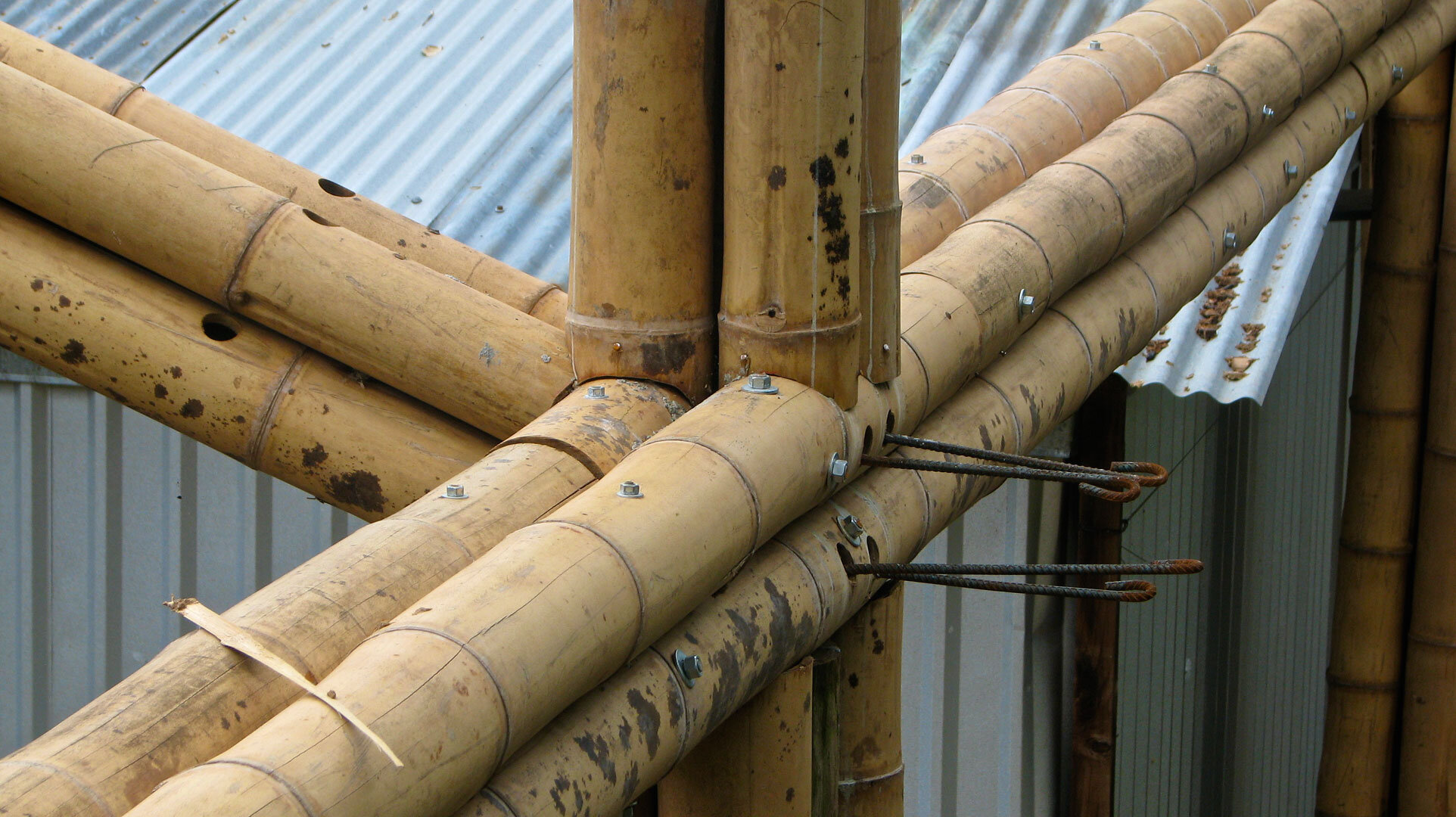How to Make a Bamboo Bed
DIY Tutorial
In this DIY tutorial we'll show you how to make a bamboo bed with very basic hand tools and without the use of any metal nails or screws.
Inventory of Materials
Tools Needed
Step 1: Drilling Double Holes in the Bamboo Bed Frame Rails
Cut two bamboo canes of 220 cm length (the tip of the cane should include a node). Continue by drilling two double holes in each bamboo bed frame rail (A). The first hole should be made at 8 cm from the tip of the bamboo cane and the second hole at 202 cm from the first. The holes should be 7 cm in diameter.
Step 2: Drilling Single Side-holes in the Bamboo Bed Frame Rails
Rotate the bamboo canes (A) 90° and drill 4 single holes (not penetrating the two sides of the cane). Drill the first hole at 24 cm from the tip of the cane (the one with the node), and the other ones 56 cm from the first. All holes must be 7 cm in diameter.
Step 3: Cutting a Fish Mouth Joint in the B1 Cane
The first cut is made with an angle of 45° starting at the end of the cane (B1). This cut must be made at both ends of the bamboo.
Step 4: Cutting a Fish Mouth Joint in the B1 Cane
The second cut is also made at 45° using the previous cut as a reference point.
Step 5: Cutting a Fish Mouth Joint in the B1 Cane
Finally, the inner edges of the fish mouth joint must be sanded or carved out, and the tips must be rounded. This is to create a better fit at the time of assembling the bamboo bed frame.
Step 6: Drilling a Single Hole in the B1 Cane
Drill a 7 cm diameter single hole in the center of the longest side of the bamboo cane (B1).
Step 7: Drilling Double Holes in the B2 Cane
Drill two double holes at both ends of the bamboo cane (B2). These double holes should be drilled at 8.5 cm from the ends of the cane and have 7 cm in diameter.
Step 8: Drilling Single Holes in the B2 Cane
Drill 3 single holes in the (B2) cane. The first and the last hole at 30.5 cm from the end of the bamboo cane, and one in the center which should be at a 22 cm distance from the others.
Step 9: Placement of the Crossbars
Place the 4 bamboo crossbars (D) in the holes that were previously made in the bed frame rails (A).
Step 10: Assembling the Headboard of the Bamboo Bed
Insert the two headboard canes (E) simultaneously in (B2) and in the bed frame rails (A) as shown in the figure below.
Step 11: Assembling the Footboard of the Bamboo Bed
The part with fish mouth cuts at the ends (B1) is placed at the other end of the bed frame rails (A); i.e. the front of the bed.
Step 12: Leg Support Placement
The (B1) part should fit tightly between the bed frame rails (A). To keep the bamboo bed frame in position, it is recommended to taut the bamboo piece by using ropes and a pin. This way you can increase the tension until the piece fits perfectly. At this point, you could also cut off the excessive material from the fish mouth joint that partly overlaps the hole in the bed frame rail.
Step 13: Making Bamboo Dowels
To secure all the parts of the bamboo bed, we'll need to use and make bamboo dowels. Take a piece of bamboo (I) and cut the bamboo cylinder along the grain into 8 equally sized segments with a machete. These parts are used to make 20 cm long dowels, with a diameter of 1.5 cm at one end and 4 mm at the other.
It is important that the bamboo dowels have a conical shape in order to easily drive and fasten the bamboo bed components. Also leave the bamboo outer layer attached to one side of the dowel since this 1 mm layer possesses 90% of the strength of the bamboo dowel. For this bed design you'll need at least 20 dowels.
Step 14: Drilling Dowels Holes in the Bamboo Bed Frame
Make 8 holes of approximately 8 mm in diameter in the bed frame rails (A). It is recommended to secure the 4 crossbars (D) at one side first before drilling the holes in the other side of the bed. Without securing one side, the corresponding holes could shift position when drilling the holes on the other side.
Step 15: Securing Bamboo Dowels in the Bed Frame
The bamboo dowels are struck until they come out on the other end of the hole. Once the bamboo dowels are secured you can cut of the excess. Some bamboo furniture makers use a drop of wood glue before inserting the bamboo dowels, but it is not required to guarantee a strong fixation of the dowel.
Step 16: Making Fish Mouth Cuts in the Legs
Perform the same process as outlined in steps 3, 4 and 5, with the only difference that only one side should contain a fish mouth cut while the other end contains a node. The resulting legs should measure 28 cm at the highest end and 23 cm at the lowest.
Step 17: Placement of the Legs
The (F) parts are used as front support, which are similar to the (E) parts that form the headboard. Both are also used as studs to penetrate the legs. The legs (C) are then placed under the frame.
Step 18: Fastening of the Legs
The legs are fastened with cross dowels as shown in the illustration below. The dowel holes are approximately 8 mm in diameter.
Step 19: Making Holes in the Footboard Frame Part B3
3 single holes of 7 cm in diameter must be made in the footboard frame piece (B3). The first and last holes are at 8.5 cm from the respective end, the other hole is in the center of the piece, which should be at 44 cm distance from the others.
Step 20: Placement of the Footboard Frame Part B3
A bamboo plug (G) is placed in the center of (B1) after which (B3) is placed on top of it. The bamboo plug helps strengthen the bamboo frame.
Step 21: Placement of the Footboard Dowels
Drill 4 holes of approximately 8 mm in diameter in the footboard as shown in the figure. Insert and fasten the dowels and cut off the excess.
Step 22: Making Holes in the Headboard Part B4
Drill 5 single holes of 7 cm in diameter in the headboard section (B4). The first and last hole are at 8.5 cm from the respective end, the other 3 holes at a 22 cm distance.
Step 23: Placement of the Headboard
Insert the 3 headboard posts (H) into (B2) and place (B4) on top of them.
Step 24: Placement of the Headboard Dowels
Drill 10 holes of approximately 8 mm in diameter in the headboard as shown in the figure. Insert and fasten the dowels and cut off the excess.
Step 25: Trimming of Bed Frame Rails and Covering Ends
Cut off the excessive material of the bed frame rails (A) and cover the open bamboo canes with a piece of wood or plywood (alternatively you could insert a bamboo node into the bamboo cane to give it a more natural look). Draw the outline of the bamboo cane directly on the plywood before cutting out the circle with a jigsaw. Glue the plywood to the bamboo with wood glue.
Step 26: Making a Bamboo Mat
Perform this process for the 3 bamboo canes (J). Also see this article for more information on making crushed bamboo mats.
1. Make cuts on the outside of the nodes to reduce the resistance of the bamboo.
2. Make partial alternating cuts in the adjacent internodes, so that the bamboo canes do not split completely.
3. Make one cut along the cane to start flattening the bamboo.
4. With the semi-open bamboo cane, the node cracks open from the inside until it loses its rigidity.
Step 27: Placement of the Bamboo Mats
Place the bamboo mats on top of the crossbars and attach them with staples (alternatively you could use a fine wire to fasten the mats to the crossbars). The inside portion of the mat must face the ground.
Step 28: Final Dimensions of the Bamboo Bed
And that's how to make a bamboo bed, now it's your turn! Feel free to share pictures of your bamboo projects in our Bamboo Forum. We love to see your creativity.
Source: Translated from Vctecbamboo

